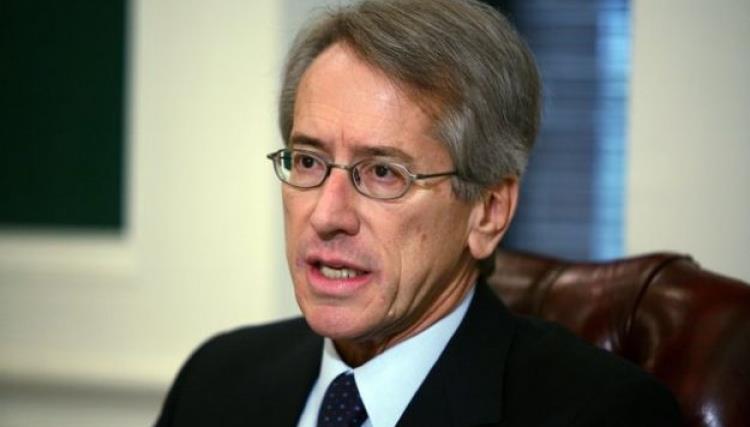By GIULIO MARIA TERZI
News Week, January 11, 2018 – Since before the conclusion of nuclear negotiations between Iran and the P5+1 in the summer of 2015, European policies toward the Islamic Republic have been badly misguided.
The desire for that nuclear deal contributed to the development of an overwhelmingly conciliatory approach by Western leaders, ultimately leading to an ineffectual agreement that gave away tens of billions of euros in sanctions relief, plus the promise of new revenue streams, without getting much in return from Iran.
The nuclear negotiations also shifted other important issues to the back burner.
Many international human rights organizations have called attention to the fact that many of the domestic indicators in the Islamic Republic actually got worse during and after those negotiations.
In the first place, the Iranian Revolutionary Guards Corps (IRGC) oversaw an escalation in the regime’s crackdown on political dissent. Additionally, the deal’s economic benefits for the IRGC and other state-linked institutions failed to trickle down to the public, which continues to suffer under double-digit rates of unemployment and out-of-control inflation.
This disconnect between the impact on the Iranian people and the Iranian regime has been given appropriate emphasis in much of the coverage of the ongoing protests that emerged last week, threatening the mullahs’ hold on power and surprising much of the world.
The impetus for those protests, which spread to upwards of 80 localities, was the public’s economic discontent. But the scope of the demonstrations quickly grew to encompass calls for “Death to Rouhani” and “Death to the dictator,” in reference to the country’s president and Supreme Leader Ali Khamenei, respectively.
As the slogans clearly called for the overthrow of the clerical regime, the authorities underscored the role of the activists of the People’s Mojahedin Organization of Iran (PMOI/MEK), which has an active underground network inside Iran and has been seeking this objective for years.
These slogans represent the public’s recognition that their personal fortunes are inextricably–and inversely–linked to the fortunes of the theocrats who are clinging to power in Tehran. As Maryam Rajavi, the President of the National Council of Resistance of Iran, put it in a statement issued after the first day of protests, “The only solution [to] economic and social problems is to overthrow the clerical regime”.
In the midst of those protests, it is crucial that European governments and the European Union as a whole put aside their previous impulses toward an “appeasement” policy, in order to help prevent further unacceptable massacres of the Iranian people by a violent and repressive theocracy.
European governments must put aside their misguided faith in the internal moderation of the Iranian regime. After more than four years in office, the so-called moderate President Rouhani has failed to deliver on any of his promised reforms either to the economy or to the climate of repression that permeates Iranian society.
No doubt this is partly because those promises were never serious in the first place, and partly because the system is set up in such a way that reforms would not be attainable even if they were serious. Europeans must finally recognize this hard fact and completely review their relations with the Iranian regime.
It was not Rouhani’s pragmatic moderation that brought the Islamic Republic to the negotiating table in advance of the 2015 nuclear deal; it was the accumulated effects of a policy of sanctions and diplomatic pressure, which had weakened the regime and forced it into choosing between a deal and the possibility of a popular revolt.
Despite Western leaders giving away leverage over Tehran in 2015, the regime remains weakened. And while the nuclear deal may have buttressed that regime’s economic prospects slightly, it has also helped the Iranian people to realize that nothing short of regime change will alleviate their suffering.
So, although European policy has indeed been misguided in recent years, every dark cloud has a silver lining, and in this case the nuclear deal may have helped to strengthen Iranians’ push for freedom and democracy. But even if this is the case, the nations of Europe must not repeat their broader mistakes.
They must not risk turning a blind eye to the Iranian people or their organized resistance movement, and they must certainly not contribute anything further to the fortunes of the Iranian regime, least of all if it continues to suppress popular dissent with unmitigated violence.
After the first week of demonstrations, some 30 activists lay dead and more than 1,000 had been arrested. Tehran’s Revolutionary Court was quick to warn that those who had been detained could face the death penalty on the basis of political charges like “enmity against God.”
The crackdown comes as no surprise, and neither will its dramatic escalation if European policymakers respond to the protests with anything less than full-throated support.
The other silver lining in the EU’s misguided policy toward Iran is that it has put the clerical regime in a position where it now stands to lose what it has only very recently gained.
Europe should stand up with one voice and declare that its emerging investments in the Islamic Republic will be null and void if there is any further violence against peaceful protesters or any further effort to cut off those activists from internet communication and social media.
Tehran should never have been allowed to enjoy its relief from economic sanctions, having never ceased its human rights abuses or curtailed its missile program and threats against regional and global adversaries. But now that we have seen the public’s sentiment in Iran, the notion of appeasing the ayatollahs should come to an end once and for all, or else Europe will be accomplice.
The choices are stark; so are the consequences.

Giulio Terzi, a former foreign minister of Italy, is a member of United Against Nuclear Iran’s Advisory Board.








